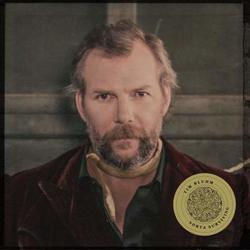| All Artists: Tim Bluhm Title: Sorta Surviving Members Wishing: 1 Total Copies: 0 Label: Blue Rose Music Release Date: 3/29/2019 Number of Discs: 1 SwapaCD Credits: 1 UPC: 855820007384 |
Search - Tim Bluhm :: Sorta Surviving
 | Tim Bluhm Sorta Surviving
For a moment, you could almost forget what year it was inside the Cash Cabin, the small sanctuary-turned-recording-studio Johnny Cash built roughly 40 years ago in Hendersonville, TN. The Man In Black's frequent collaborat... more » |
Larger Image |
CD Details
Synopsis
Product Description
For a moment, you could almost forget what year it was inside the Cash Cabin, the small sanctuary-turned-recording-studio Johnny Cash built roughly 40 years ago in Hendersonville, TN. The Man In Black's frequent collaborators Dave Roe and Gene Chrisman were back at the bass and drums respectively, and tape was rolling as they counted in the Cash classic "I Still Miss Someone." Tim Bluhm had to pinch himself. "Recording in that space with those guys was like a dream come true for me," says Bluhm. "The depth of knowledge they walk around with in their heads is amazing, and you know you can trust the musical choices they're making because they have the experience to back it up. When they say, 'This is what Merle would have done,' it's because they know firsthand." While Bluhm may be best known for the breezy brand of West Coast roots and soul he helped pioneer with his band, The Mother Hips, his brilliant new solo album, Sorta Surviving, revels in his longtime love for classic country music. Recorded and mixed at the Cash Cabin under the guidance of Widespread Panic's Dave Schools, the collection is earnestly authentic and utterly timeless, and it finds Bluhm backed by elder statesmen like Roe and Chrisman along with younger virtuosos like keyboardist Jason Crosby (Eric Clapton, Dave Matthews) and Jesse Aycock (Hard Working Americans, Elizabeth Cook). "The band brought a certain maturity and experience," explains Schools. "Tim's songwriting is so strong that it naturally suggests how to complement itself, but those guys really know how to play and still leave room for a great singer." Indeed, the arrangements on the album are refined and elegant, yet still stripped-down and raw, enabling Bluhm's warm, easygoing vocals to sit front-and-center as he weaves vivid tales of ordinary men and women facing down hard days and even harder nights. Mixing new originals and reimagined covers, the record pulls from a half-century of American music to craft a thoroughly modern love letter to a bygone era, one that showcases both Bluhm's deft musical hand and his heartfelt reverence for the genre. "I've been a fan of classic country ever since I heard Merle Haggard sing," reflects Bluhm. "I just admired his voice and storytelling so much, but I never made an album like this before because I figured it would take me at least 20 or 30 years to get good enough." Bluhm discovered Haggard around the same time he co-founded the now-iconic Mother Hips, a band the San Francisco Chronicle has hailed as "one of the Bay Area's most beloved live outfits." The group began it's journey at Chico State, where performing at frat parties quickly gave way to club shows, regional touring, and national buzz, and before Bluhm and his bandmates had even graduated, they were already signed to Rick Rubin's American Recordings on the strength of their debut album, 'Back To The Grotto.' "When we signed with American, the label had just put out Johnny Cash's first Rick Rubin-produced album, which was actually recorded at the Cash Cabin," says Bluhm. "I got to meet and hang with Johnny a couple times back then, and after that, we opened for him at The Fillmore in San Francisco. I was so impressed with his presence. He definitely lived up to his legend in real life, and he made a big impression on me." Over the ensuing two-and-a-half decades, the Hips would release nine more studio albums as they cemented their status as festival and critical favorites, sharing bills with everyone from Wilco and Widespread Panic to Lucinda Williams and The Black Crowes along the way. Rolling Stone called them "divinely inspired," while Pitchfork praised their "rootsy mix of 70s rock and power pop," and The New Yorker lauded their ability to "sing it sweet and play it dirty." Ever-curious and wildly prolific, Bluhm simultaneously released a slew of his own solo and collaborative projects on the side. He toured for years as music director with Nicki Bluhm & The Gramblers, teamed up with The Grateful Dead's Mickey Hart and Bill Kreutzmann among others, and opened up Mission Bells Studio with fellow California favorite Jackie Greene and engineer Dave Simon-Baker. There, Bluhm produced albums for everyone from the Hips and Greene to Hot Buttered Rum and Little Wings in addition to hosting Phil Lesh, Josh Ritter, Rogue Wave, Los Lobos, Jonathan Richman, and more. As if that wasn't enough to keep him busy, in 2007, Bluhm and the Hips launched the Hipnic, an intimate and immaculately-curated music festival that's still held annually amongst the towering redwoods of Big Sur. Sorta Surviving marks Bluhm's first collection recorded outside of California, but one listen and it's clear that he's equally at home in the pines of Tennessee. There's a comfort to the performances, a subtle familiarity that radiates out like a warm invitation. "Most of the songs on this album are second or third takes," says Schools. "That comes from experience and teamwork, but also from working in a great environment. It's a palpable thing you feel when you're working in the room where Johnny Cash wrote his autobiography and recorded some of the best work of his later years. We were definitely all a little nervous meeting for the first time, but we got comfortable real quick there." The songs are character-driven, valuing the visceral over the cerebral, and Bluhm inhabits his narrators with a voice as tough and as pliable as worn-in leather. "It just felt natural for me to sing this way," he explains. "It was a chance to put away the books and focus more on the everyday rather than the existential, a chance to pull out the guitar and really tell some stories." Some of those stories come secondhand: the bluesy "Del Rio Dan" was first popularized by The Everly Brothers in the 1970's, while the waltzing "Kern River" is a Merle Haggard favorite, and Johnny Cash's "I Still Miss Someone" gets a melancholy makeover with a tip of the cap to Neil Young's timeless take on "Oh Lonesome Me." That the covers fit so seamlessly alongside Bluhm's original material stands as a testament both to his gifts as a compelling storyteller and his playful way with words. The shuffling "Jesus Save A Singer" tackles struggle and redemption with a wry smile, while the stream-of-consciousness title track sardonically examines our instinct to perpetually press on, and the honky-tonking "Where I Parked My Mind" finds dark wit even in the depths of addiction. "There's more humor in these songs than anything else I've written before," says Bluhm, "but it's all very tongue in cheek. That's a country music tradition." While tradition guided Bluhm throughout the project, he wasn't beholden to it, frequently taking risks and pushing boundaries with his performances and arrangements. In the end, his goal wasn't just to make a country-tinged record, but rather to craft narratives that could truly transport his listeners, that could breathe new life into stories forgotten and stories imagined, tales of dustbowl farmers and oil men and fugitive outlaws and traveling singers. "As a kid growing up in LA, I never even heard of country music," reflects Bluhm, "but I remember flipping around the radio dial and coming across 'The Gambler.' It was a song that just completely transcended genre. It was no more 'country' than Mark Twain was 'country.' It was a simple, timeless story set to music, and that's what I've ultimately aspired to make myself."
Similar CDs
| Jim James Uniform Distortion Genre: Rock Label: ATO Records | |
| Son Volt Union Genre: Rock Label: TRANSMIT SOUND | |
| Brent Cobb Providence Canyon Genres: Country, Pop Label: New Elektra | |
| Nicki Bluhm To Rise You Gotta Fall Genres: Pop, Rock Label: Compass Records | |
| Leftover Salmon Something Higher Genres: Pop, Rock Label: SOUNDLY MUSIC, LLC | |

 Track Listings (10) - Disc #1
Track Listings (10) - Disc #1





